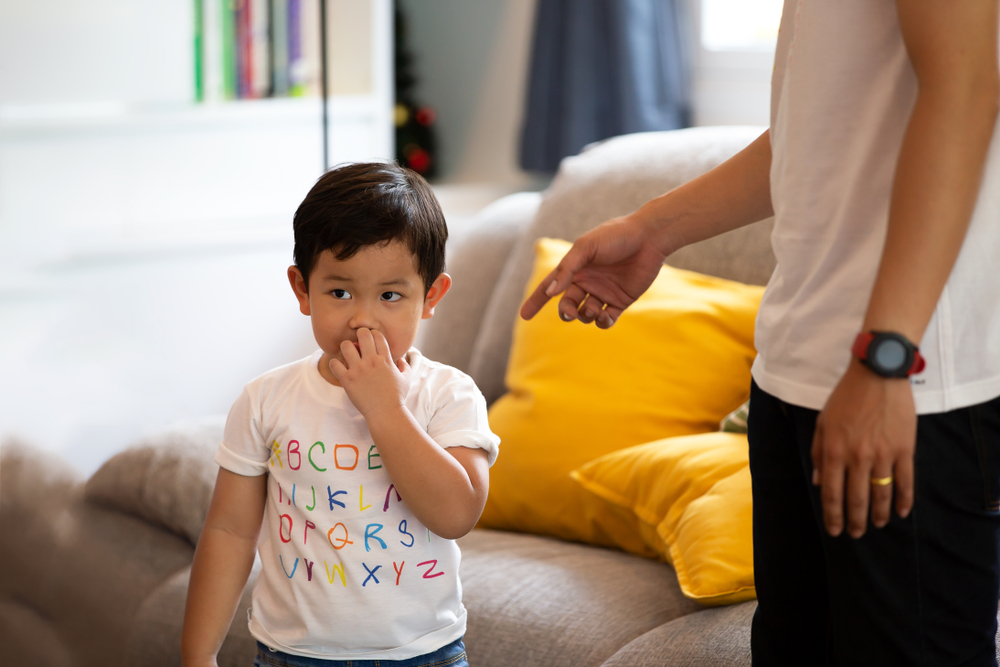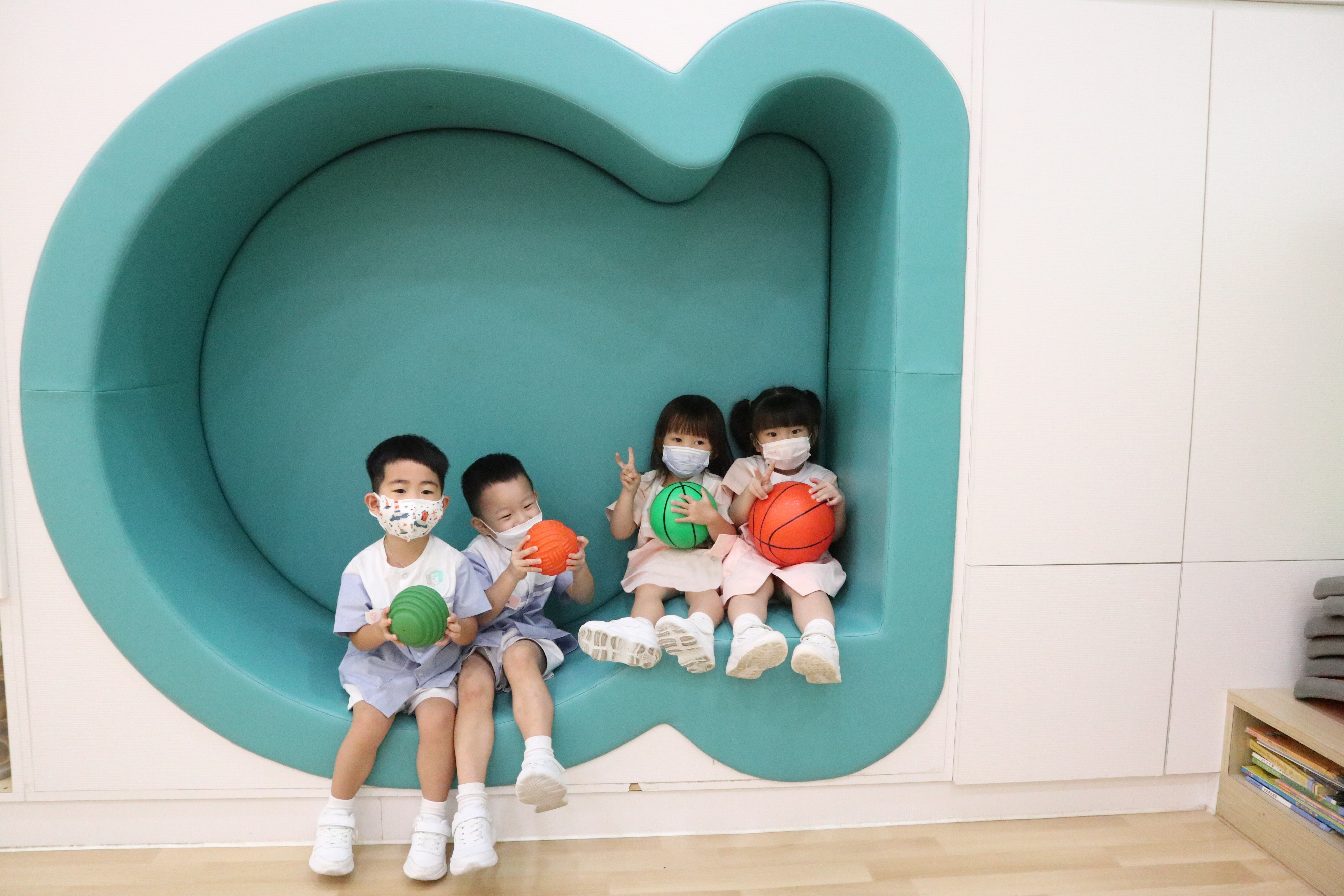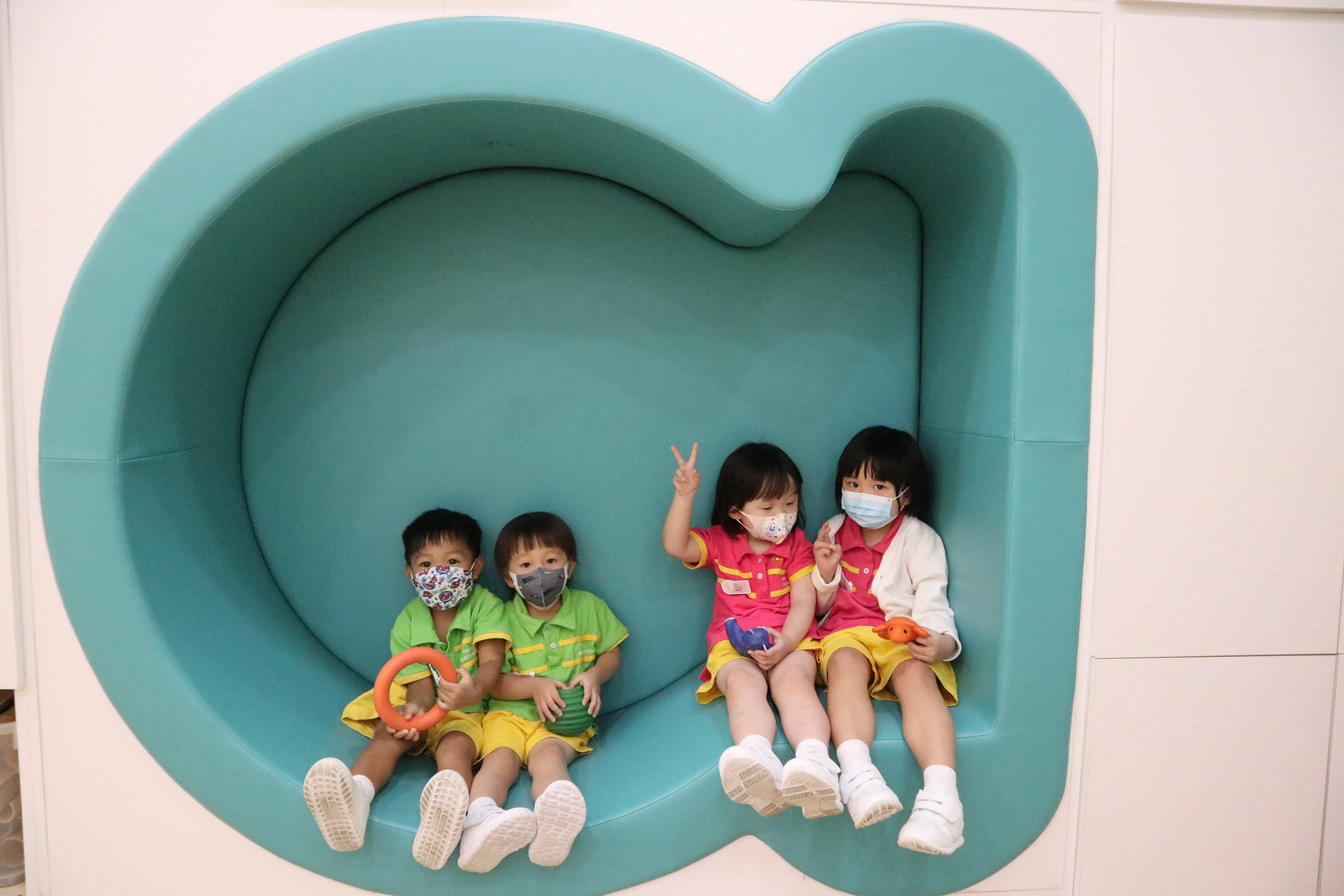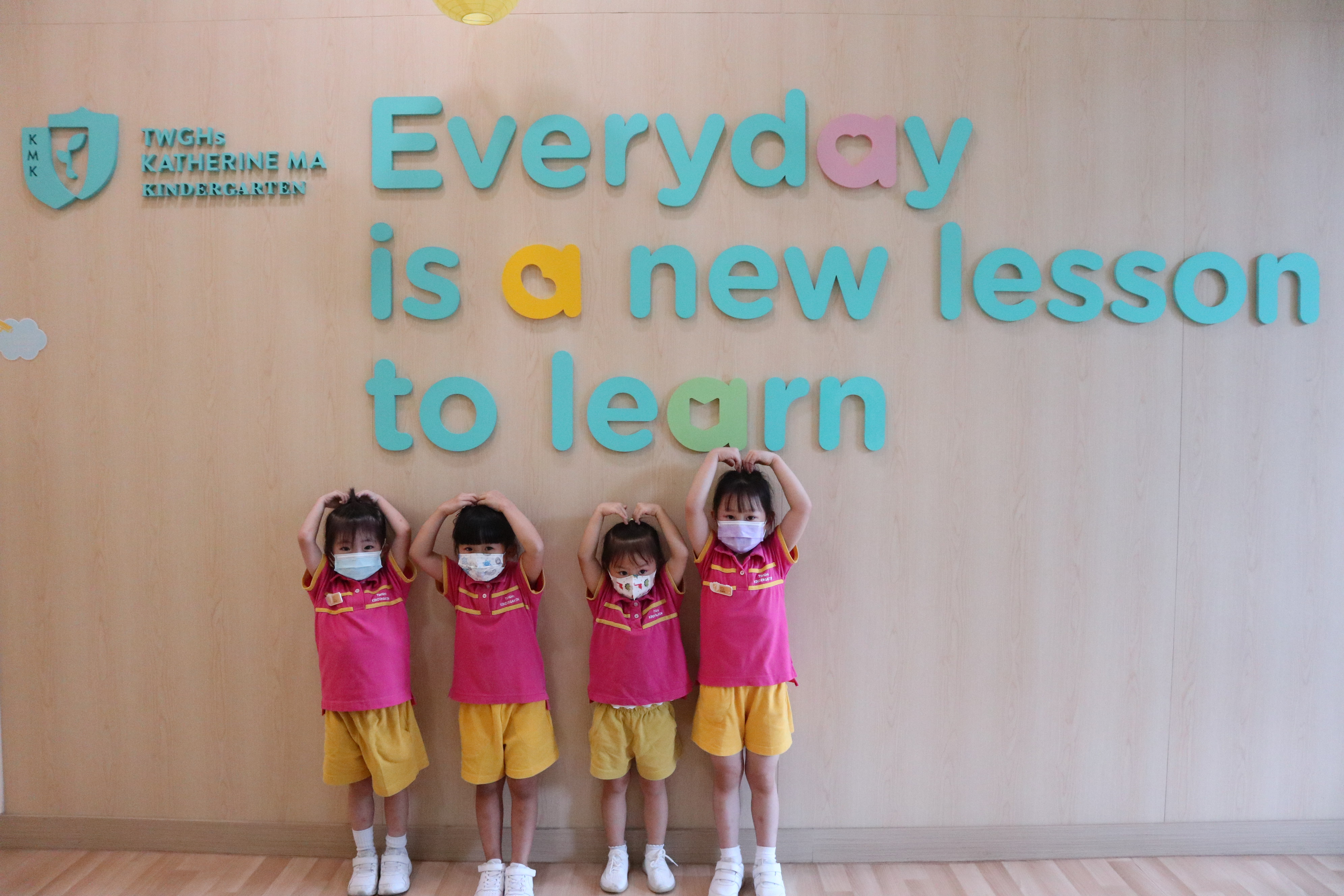Month: September 2022
Low toddler patience. Learning the importance of waiting
- Post author By TWGHs KMKG
- Post date 03/09/2022


Low toddler patience. Learning the importance of waiting

Written by: Ms. Ng Ka Chun, Former Principal of Lok Sin Tong Leung Wong Wai Fong Memorial School
Young children always have low patience and have difficulty tolerating & waiting. Self-control is a comprehensive ability of an individual to properly control and regulate his or her behavior without external supervision, to suppress impulses, and persevere to ensure the achievement of goals. It is an important component in the construction of self-awareness and is an important psychological quality for the success of an individual.
Waiting is the mark of a child’s success
In the 1960s, the American psychologist Professor Michel conducted a fudge experiment. He took a group of children aged about four to a modestly furnished house and gave them each a very tasty piece of fudge, telling them that if they ate the fudge right away, they could only eat one; if they ate it again after 20 minutes, they would be rewarded with one more piece of fudge, and they could eat two pieces of fudge in total. After Michelle left, some children were eager to eat the candy, while others were patient, closed their eyes, or rested their heads on their arms as sleep; some children talked to themselves or sang to divert their attention and spent time restraining their desire. Through observation, Michelle found that one-third of the children ate the candy immediately, one-third of the children waited for Michelle to come back and redeem the extra reward before they started to eat, and another one-third of the children insisted at first, but then could not resist giving up waiting.

Michel continued to follow the children who participated in the experiment until they graduated from high school. The results of the follow-up study showed that the children who started eating candy right away showed a lack of confidence and did not get along well with their peers as teenagers, while those who waited until the end to eat candy were socially competent, assertive and academically successful. The “waiters” scored an average of 210 points higher on the test than the “non-waiters”. The actual results show that those children who could wait had a much higher success rate than those who could not wait.
In the above experiment, Michel introduced the concept of “delayed gratification” – the ability to wait is the ability to delay gratification, and children with delayed gratification are more likely to succeed as adults.
Let babies learn to wait a while
Patience is not something children are born with, but it can be mastered through learning. Before a child can learn patience, he or she must have the “ability to measure and understand time” and the “ability to understand cause and effect” before we can develop the ability to tolerate frustration and delay gratification.

Infants from zero to 18 months of age have only two or three minutes of patience. Even so, newborns must be taught to wait a while, and encouraging patience begins with simply telling them. When he hears your words, he will begin to think about what will come later, so parents can prepare their baby for his needs while describing in words what you have prepared for him. When a few months old baby hears you, he will stop fretting as a sign that he understands what you are saying, because language is linked to cause-and-effect thinking, so it helps babies learn to delay gratification.
What should we do if a child is having a tantrum?
- Post author By TWGHs KMKG
- Post date 02/09/2022


What should we do if a child is having a tantrum?

Written by:Dr. Hui Lung Kit, Psychiatry Specialist
Many parents have had the experience of taking their children out to play, and the family was in a happy mood and the children were having a good time. But suddenly, the child makes some unreasonable requests (such as seeing a toy to buy), and the parent does not allow it, the child immediately changes his face and cries. When the parent reprimands the child, the child becomes more aggressive, not only crying louder, but also having a tantrum fiercely and stomping on the ground, attracting the attention of passers-by (who may even suspect that you are abusing the child). Parents have no choice but to do their utmost to soothe the child, or even raise their hands in surrender and buy the child a toy in the hope of calming the storm. In the end, once the child has succeeded in his request, he would turn tears into laughter even when the toy is still not received. The previous crying is gone and makes parents unable to laugh or cry.
However, have parents ever noticed that if the number of times of “compromise due to pressure” increases, the number of children’s cries will increase instead of decrease? This is due to a psychological phenomenon – “Positive Reinforcement” consequence. Positive Reinforcement” means that when a behavior occurs, if a reward is given immediately, the behavior will occur again. The more the reward, the higher the chance that the behavior will be repeated.

To apply the example to the child, if the child cries a lot, if the adult satisfies his unreasonable request (such as buying a toy) when he is most agitated, this is a reward for his crying behavior, and in the future, when the child has other unreasonable requests, he will be more inclined to use the crying method to achieve his goal. In addition, children generally want to be loved and cared for by their parents. If parents usually ignore them, but the child cries, the parents will immediately become very nervous because even scolding is a form of attention, and over time, children will tend to cry as a means of attracting their parents’ attention.
Therefore, the first and foremost thing parents should do to properly handle their children’s crying is to maintain a gentle attitude, but at the same time, they should stick to their principles and not compromise easily, especially not to finally give in and meet demands just because the child continues to cry. If parents cannot control the situation, they can try to reduce their attention to the child, such as removing eye contact, being expressionless, or not talking to the child. In addition, if the crying occurs at home, parents can take the child to a quiet corner, cut off all attention to the child, let the child calm down, and then slowly explain to him what the problem is.

Of course, it is more important to give children appropriate attention from time to time when they are behaving well and not crying, so that they feel safe and do not use fussing as a “bargaining chip” to win the love of their parents. This is the solution to the problem
Children wet the bed at night, but cannot control themselves.
- Post author By TWGHs KMKG
- Post date 01/09/2022


Children wet the bed at night, but cannot control themselves.

Written by Chinese Doctor Yiu Yee Chiu
Every parent wants their child to develop well and quickly, not to lag behind, if not to be better than others. In medicine, there is a condition between “disease” and “physiology” that both parents and children find very disturbing. This is “nocturnal enuresis in children”.
Nocturnal enuresis is a stage of physiological development, but it is a problem if a child is still unable to control his or her urination and wets the bed after the age of 5. Nocturnal enuresis in children can be divided into two types: primary and secondary. The former is a pathological cause, such as spina bifida, or developmental delay. In the case of secondary causes, the child has control over the urine, but then for some reason, it gets out of control. The most common cause is an unexplained delay in development.
Medication, Physical Therapy, and Life
In Chinese medicine, the production of urine is related to several internal organs. The causes are kidney qi deficiency, spleen-lung qi deficiency, and liver stagnation and heat. In clinical practice, the main cause is kidney qi deficiency. Unlike adult enuresis or secondary enuresis in children, the condition will generally improve with several months of treatment. However, the treatment must be combined with medication,
physical therapy, and life support.

Chinese herbal medicine treatment: the main ingredients are mulberry cuttlebone, puzzle nut, whole cherry, Schisandra, yam, and mulberry.
Physical therapy: Acupuncture and massage, mainly for the bladder and kidney meridians in the back
Strict abstinence from food: Avoid cold and raw foods and beverages to avoid further damage to kidney energy
Food therapy: Use peaches, tzatziki, Chinese yam, etc. as a meal or dessert
Hot compress before bedtime: Apply hot compresses to the kidney points on the back of the bladder meridian every night before bedtime. For a more pronounced effect, use cumin, white pepper, or peppercorns and then wrap them in a cloth bag.
It turns out that nocturnal enuresis is not a rare occurrence and most children recover completely. Therefore, the most important thing is how to let the child pass through this stage smoothly. If parents don’t handle it properly, it may affect their self-esteem. Therefore, it is important to see a doctor for a formal examination of the situation so that you can really help your child.







